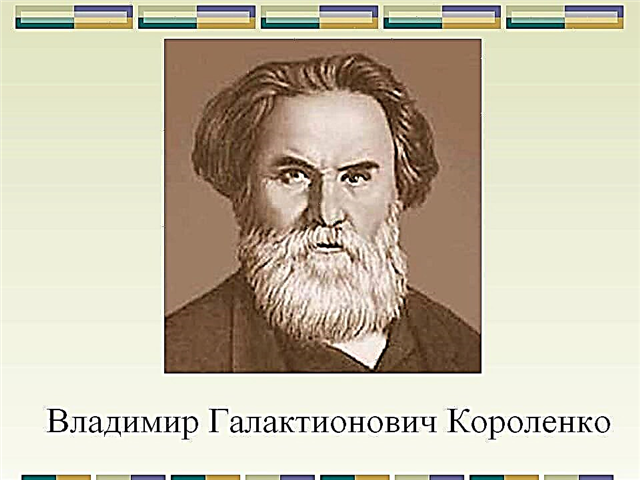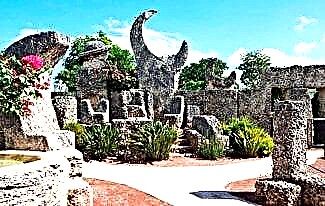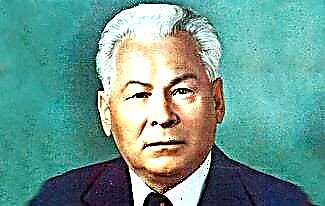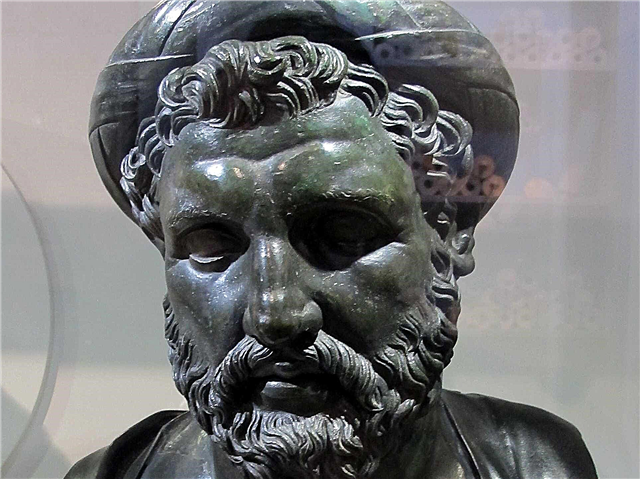Publius (or Guy) Cornelius Tacitus (c. 120) - ancient Roman historian, one of the most famous writers of antiquity, author of 3 small works (Agricola, Germany, Dialogue about Orators) and 2 large historical works (History and the Annals).
There are many interesting facts in the biography of Tacitus, which we will talk about in this article.
So, before you is a short biography of Publius Cornelius Tacitus.

Biography of Tacitus
The exact date of birth of Tacitus remains unknown. He was born in the mid-50s. Most biographers give dates between 55 and 58.
The birthplace of the historian also remains unknown, but it is generally believed that it was Narbonne Gaul - one of the provinces of the Roman Empire.
We know very little about the early life of Tacitus. His father is usually identified with the procurator Cornelius Tacitus. The future historian received a good rhetorical education.
It is believed that Tacitus studied rhetorical art from Quintilian, and later from Mark Apra and Julius Secundus. He proved himself to be a talented orator in his youth, as a result of which he was very popular in society. In the mid-70s, his career began to develop rapidly.
Young Tacitus served as a judicial orator, and soon found himself in the Senate, which spoke of the emperor's confidence in him. In 88 he became praetor, and after about 9 years he managed to achieve the highest magistracy of the consul.
History
Having reached great heights in politics, Tacitus personally observed the arbitrariness of the rulers, as well as the groveling of the senators. After the assassination of the emperor Domitian and the transfer of power to the Antonine dynasty, the historian decided in detail, and most importantly - truthfully, to outline the events of the last decades.
Tacitus carefully researched all possible sources, trying to give an objective assessment of various figures and events. He deliberately avoided hackneyed expressions and statements, preferring to describe the material in laconic and clear phrases.

It is curious that trying to truthfully present the material, Tacitus often pointed out that a certain source of information may not correspond to reality.
Thanks to his writing talent, a serious study of sources and the disclosure of the psychological portrait of different persons, today Tacitus is often called the greatest Roman historian of his time.
During the life of 97-98. Tacitus presented a work called Agricola, which was dedicated to the biography of his father-in-law Gnei Julius Agricola. After that, he published a small work "Germany", where he described the social system, religion and life of the Germanic tribes.
Then Publius Tacitus published a major work "History", dedicated to the events of 68-96. Among other things, it told about the so-called - "year of the four emperors." The fact is that from 68 to 69, 4 emperors were replaced in the Roman Empire: Galba, Otho, Vitellius and Vespasian.
In the essay "Dialogue on Orators" Tacitus told the reader about the conversation of several famous Roman orators, about his own craft and his modest place in society.
The last and largest work of Publius Cornelius Tacitus is the Annals, written by him in the last years of his biography. This work consisted of 16, and possibly 18 books. It is worth noting that less than half of the books have survived in their entirety to this day.
Thus, Tacitus left us detailed descriptions of the reign of Tiberius and Nero, who are among the most famous Roman emperors.
An interesting fact is that the Annals tells about the persecution and executions of the first Christians during the reign of Nero - one of the first independent testimonies about Jesus Christ.
The writings of Publius Cornelius Tacitus contain quite a few excursions into the geography, history and ethnography of different peoples.

Along with other historians, he called other peoples barbarians, who were far from the civilized Romans. At the same time, the historian often spoke about the merits of certain barbarians.
Tacitus was a supporter of the preservation of the power of Rome over other peoples. While in the Senate, he supported bills that spoke of the need to maintain strict order in the provinces. However, he stated that the governors of the provinces should not be biased towards their subordinates.
Political Views
Tacitus identified 3 main types of government: monarchy, aristocracy and democracy. At the same time, he was not supportive of any of them, criticizing all the listed forms of government.
Publius Cornelius Tacitus also had a negative attitude towards the Roman Senate he knew. He publicly stated that senators somehow grovel before the emperor.
The most successful form of government, Tacitus called the republican system, although he did not consider it ideal either. Nevertheless, with such a structure in society, it is much easier to develop justice and virtuous qualities in citizens, as well as achieve equality.
Personal life
Almost nothing is known about his personal life, like many other features of his biography. According to the surviving documents, he was married to the daughter of the military leader Gnei Julius Agricola, who, in fact, was the initiator of the marriage.
Death
The exact date of the speaker's death is not known. It is generally accepted that Tacitus died ca. 120 or later. If this is true, then his death fell on the reign of Adrian.
Photo of Tacitus












